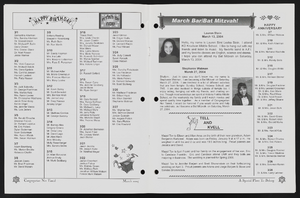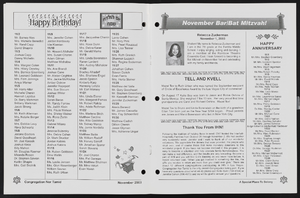Search the Special Collections and Archives Portal
Search Results
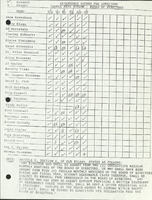
Minutes from Temple Beth Sholom Board of Directors meetings, June 1988 - May 1989
Date
1988 to 1989
Archival Collection
Description
Meeting minutes include reports from committees of the board, correspondence, and balance sheets.
Text
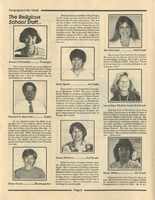
Newsletter from Congregation Ner Tamid, October 1991
Date
1991-10
Archival Collection
Description
Newsletter from Congregation Ner Tamid, October 1991
Text
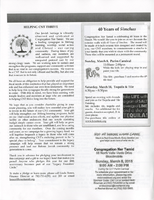
Newsletter from Congregation Ner Tamid, March 2015
Date
2015-03
Archival Collection
Description
Newsletter from Congregation Ner Tamid, March 2015
Text

Interview with Marcell Eugene Bridges, June 12, 2004
Date
2004-06-12
Archival Collection
Description
Narrator affiliation: Downwinder (Salt Lake City, Utah)
Text

Interview with Zenna Mae (Schmid) Bridges, June 12, 2004
Date
2004-06-12
Archival Collection
Description
Narrator affiliation: Downwinder (Salt Lake City, Utah)
Text
Pagination
Refine my results
Content Type
Creator or Contributor
Subject
Archival Collection
Digital Project
Resource Type
Year
Material Type
Place
Language
Records Classification


